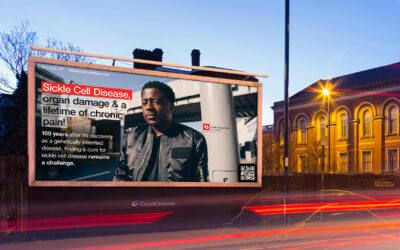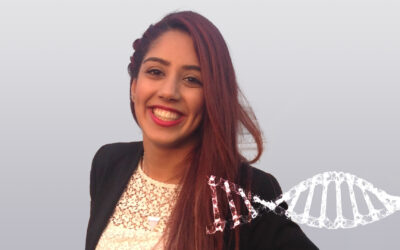This is What Sickle Cell Looks Like: The Human and Social Impact
Aisatu Beadford-King, SCD patient and founder of the Africa Sickle Aid (ASA), speaks on the human impact of raising SCD awareness.
It’s taken several years for Aisatu Beadford-King to feel comfortable in her own skin.
As the only child in her family with Sickle Cell Disease (SCD), Aisatu had always felt different. While her siblings and peers enjoyed school breaks, free of any cares or worries, Aisatu would have to stay home and watch from the sidelines. Reflecting on her childhood, Aisatu remembers being quiet and reserved, not wanting to draw attention to herself or what she was going through. Experiencing such “unimaginable pain at such a young age”, she recalls, “makes you isolate yourself.”
“But compared to patients in other parts of the world, like Africa, who do not have the same access or opportunities that we have…I can’t begin to imagine what that’s like for young patients and families.”
Aisatu was born in Liberia, where she spent the formative years of her life. Her experience being an SCD patient in multiple international contexts gave her a unique perspective. She and her family saw first-hand how deeply patient outcomes are impacted by varying levels of SCD awareness in different countries. In Liberia, where access to education or basic pain medications is sparse, the quality of life is dangerously low for SCD patients. Although SCD patients in more developed nations face health inequities, Aisatu states that this is “nothing in comparison to other countries”:
“For many, especially those in less fortunate communities, it is literally impossible to access essential OTC medications that you and I have or the doctors and specialist teams many of us see here. This isn’t fair because pain doesn’t discriminate.”
“Because of this, it is my mission to make sure I can help as many other people as possible. I do this through my charity, African Sickle Cell Alliance (ASA), and by partnering with patient ecosystems like Sanius health.”
Aisatu founded ASA with her mother to make a real social impact on SCD patients in Africa and beyond. The organisation, the brainchild of the mother and daughter duo, was established on their want to learn more about SCD – and to educate those in less developed countries about the condition. She states that her “mother had always wanted to help people in Africa with SCD, especially after she found out that Aisatu had it.” In addition, Aisatu’s mother “didn’t know that she had the SCD trait, or that half of her family did.”
“Coming to the UK, having limited knowledge of my condition and SCD, in general, proved to be a challenge for her, me, and the rest of the family. It wasn’t something we talked about when I was younger, making the first few years of accessing care difficult.”
“It wasn’t until after I started university that we decided that things needed to change. That we needed to be vocal about our experiences in Africa and the UK so that families like ours would never need to struggle as I did. So, we started our charity to make a positive social impact on the world.”
ASA’s core mission is to give patients like Aisatu the means to make the most of available health resources, no matter where they are. It means making a real human and social impact on SCD patients by connecting with communities all over the world.
Making these connections for patients, Aisatu said, drove her and her organisation to partner with Sanius Health. The partnership involves sending educational pamphlets and basic medicines to struggling families across West Africa. At its core, Aisatu’s work with Sanius Health revolves around making a positive change for families, no matter how big or small:
“We are going to make a very impactful change to how people with SCD live, deal with or learn about the condition in Africa. We’re working together to change their perception of the condition and giving communities medications or vitamins that they need.”
“Most importantly, we and Sanius Health are giving them the knowledge they need to sustain their lives. As much as sending medications and painkillers helps, knowing more about themselves and their bodies will save communities in the long term.”
According to Aisatu, knowledge is the most powerful tool in creating positive social and human impacts for SCD patients. For her, giving communities not only knowledge – but also access to an international community through ASA and Sanius Health’s work will ultimately make this a reality:
“If having and living with SCD in the UK feels lonely, I can only imagine what it would be like in other parts of the world where the mindset is very different than mindset.”
“We’re working together to change just that. To make a difference for individuals and their communities. To help patients and those outside the SCD community understand what the SCD experience is like. And to make a better future for us all”
To raise awareness of SCD, we are working with patients like Aisatu and other advocacy groups community to make a positive and impactful change for the SCD community world wide.
Learn more about raising awareness around Sickle Cell Disease by accessing Sanius Health’s campaign site: https://whatscdlookslike.com/




